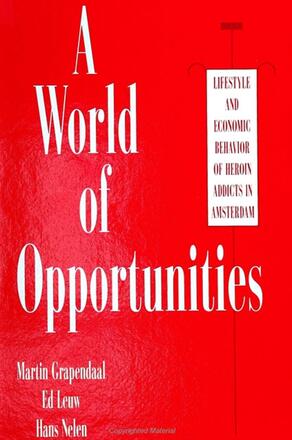
A World of Opportunities
Lifestyle and Economic Behavior of Heroin Addicts in Amsterdam
Alternative formats available from:
This book examines the policies of the Dutch toward illicit drug use and the effect these policies have had on heroin addicts and drug-related crime.
Description
In many countries, the debate on drug issues has turned into polarization between legalization and prohibition. This book provides a third strategy, a "compromise" between the two extreme positions.
The Netherlands, particularly its capital Amsterdam, is known for its relatively tolerant attitude to the illegal drug phenomenon. In contrast to the American ideology of radical prohibitionism that has resulted in a "war on drugs," the Dutch have adopted their own 'pragmatic' approach, which involves decriminalization of the use of drugs and some (limited) tolerance for the hard drugs scene to become open and visible within society.
The central theme of this book is to determine whether the life style and the economic behavior of heroin addicts have been influenced by the Dutch social and cultural climate. Emphasis has been put on drug related crime and the influence of methadone maintenance programs on the nature and extent of criminal activities. The results are remarkable.
Martin Grapendaal is a social and organizational psychologist. Since 1984 he has been a researcher at the Research and Documentation Center (RDC) of The Ministry of Justice in the Netherlands, specializing in prison and drug research. Ed Leuw is a criminologist, currently employed by the RDC. His research and publications are mainly in the field of social and judicial drug policy and drug related crime. Hans Nelen is a criminologist and lawyer. Since 1986 he has been a researcher at the RDC, mainly involved in police and drug research. Recently, he has been active in the field of fraud and victimology.